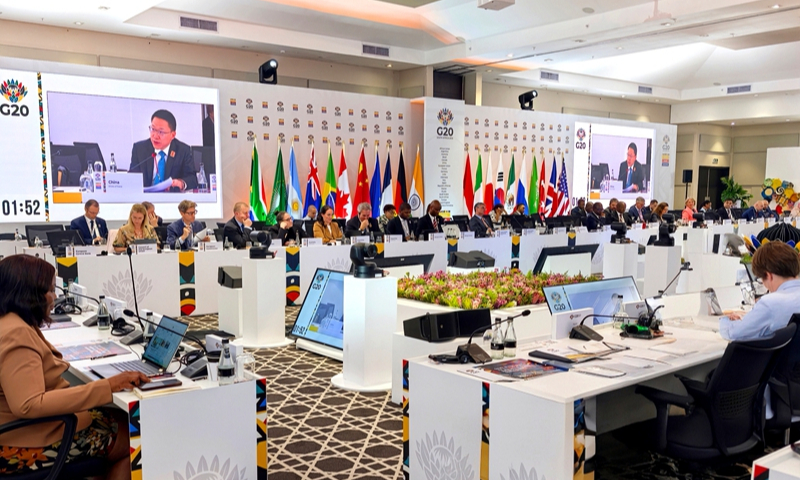China Urges G20 to Champion Free Trade and Multilateralism Amid Global Economic Uncertainty

At the recent G20 Finance Ministers and Central Bank Governors meeting held in Durban, South Africa, Chinese Vice Finance Minister Liao Min delivered a strong message advocating for the preservation of multilateralism and the promotion of free trade. His remarks came amidst growing concerns about global economic headwinds, protectionist tendencies, and geopolitical instability impacting international commerce.
Minister Liao's call to action underscored China's commitment to an open and interconnected global economy. He emphasized that multilateralism, characterized by international cooperation and shared responsibility, is essential for addressing complex global challenges such as inflation, debt sustainability, and climate change. He argued that unilateral actions and trade barriers ultimately harm all nations involved, hindering economic growth and prosperity.
“The G20 plays a vital role in coordinating global economic policies and fostering international cooperation,” Minister Liao stated. “Now, more than ever, it is crucial that we reaffirm our commitment to multilateralism and work together to ensure a stable and predictable global economic environment.”
Specifically, Minister Liao highlighted the importance of maintaining an open and rules-based trading system. He warned against the dangers of protectionism and advocated for reducing trade barriers to facilitate the flow of goods, services, and investment. He emphasized that free trade benefits consumers by lowering prices, increases competition, and fosters innovation.
The Durban meeting took place against a backdrop of significant economic uncertainty. Concerns remain about persistent inflation in many countries, the potential for a global recession, and the impact of rising interest rates. Furthermore, geopolitical tensions and supply chain disruptions continue to pose challenges to global trade and investment.
China's stance aligns with its broader economic policy of promoting globalization and deepening international economic integration. Beijing has consistently championed multilateral institutions such as the World Trade Organization (WTO) and has actively participated in regional trade agreements. China's Belt and Road Initiative (BRI) is also viewed as a key component of its strategy to enhance global connectivity and promote economic development.
Minister Liao’s intervention in Durban served as a timely reminder of the importance of international cooperation in navigating the current economic landscape. His call for multilateralism and free trade resonated with many participants at the G20 meeting, who recognised the need for a collaborative approach to address the shared challenges facing the global economy. The coming months will be crucial in determining whether the G20 can effectively translate these commitments into concrete actions that promote sustainable and inclusive economic growth.
The message from China is clear: embracing multilateralism and free trade is not just a matter of principle, but a necessity for ensuring a resilient and prosperous global economy in the face of increasing uncertainty. The G20’s ability to heed this call will be a key determinant of the world's economic future.





